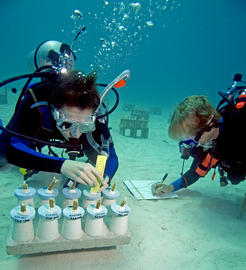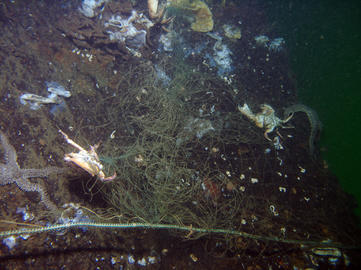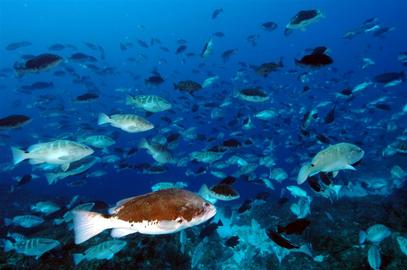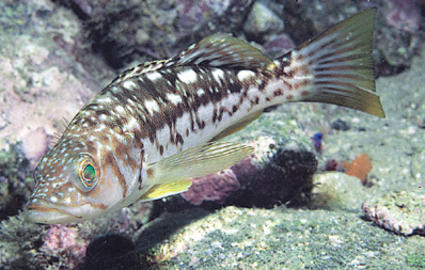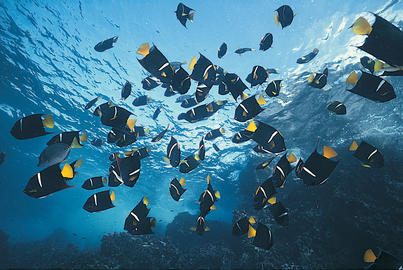A Big Win-Win: Have a Great Dive Trip in Key Largo and Support REEFFor REEF Members: Amy Slate’s Amoray Dive Resort will donate 20% of the cost of your Key Largo dive vacation to REEF. This offer of support has no time or package restrictions. Contact the folks at Amoray for more information.
During the last week of April, divers from around the country gathered at Amoray Dive Resort in Key Largo, Florida for a REEF Fish Behavior Tour hosted by Ned and Anna DeLoach. After making two morning dives each day, the group spent their late afternoons and early evenings attending entertaining talks about the myriad fish they encountered on the reef. Lad Akins, REEF’s Special Projects Director, dropped by to explain the science behind the recent invasion of Indo-Pacific lionfish in the western Atlantic.
Last Summer during a dive with Pacific Adventure Charters in Hood Canal, Washington, a group of REEF Pacific Advanced Assessment Team (AAT) surveyors came across something unexpected. As part of REEF’s funded project with The Russell Family Foundation, the team’s goal was to look for invasive tunicates and do REEF marine life surveys on several previously unsurveyed sites. While they found the invasive tunicates they were looking for, they also found a derelict fishing net that was damaging fragile habitat and ensnaring marine life.
REEF is hosting this community panel discussion to raise awareness about how volunteers contribute to scientific understanding of the environment. Rick Bonney of the Cornell Lab of Ornithology in Ithaca, New York will lead the discussion. Florida Keys-based citizen science practitioners will present on local projects and ways for volunteers to get involved. Topics include fish and bird surveying, native plants and coral restoration.
This is the second in a series. The first was held in February in Key Largo, FL.
Panel Speakers include: Leda Cunningham, REEF
Thanks to a three-year grant from the Lenfest Ocean Program at the Pew Charitable Trusts, REEF and collaborators at the Cayman Islands Department of the Environment (CIDOE) and Oregon State University (OSU) will greatly expand the conservation science research being conducted as part of the Grouper Moon Project in the Cayman Islands.
The REEF 2008 Field Survey Schedule is in full swing. Many of the trips are already sold out, but we wanted to bring your attention to one that still has some space on it -- the Field Survey to Baja Mexico aboard the Don Jose in the Sea of Cortez this October. This is a great trip, with spectacular diving and lots of tropical fishes, warm and clear water, and beautiful topside scenery. Some of the highlights include giant hawkfish, jawfish the size of your leg, whale sharks and manta rays, and spectacular sunsets over unpopulated desert islands.
As part of a current REEF training project in the Pacific Northwest that is funded by The Russell Family Foundation, regional REEF instructor, Janna Nichols, has organized free training sessions around the region in order to enlist new divers into the Volunteer Survey Project. The TRFF project also includes funding for periodic boat dives that are open to active REEF surveyors in order to provide opportunities and incentive for existing REEF surveyors to stay involved and increase their surveyor skill level.

